American religious landscapeBuddhism among Asian Americans: According to a recent Pew Research Center study, about one-in-ten Asian American adults (11%) say their religion is Buddhism, a slight decline from 14% in 2012. A much larger share (21%) currently say that, aside from religion, they feel close to Buddhism for reasons such as ancestry or culture. In total, one-third of Asian Americans express at least some connection to Buddhism. Among East Asian origin groups (Chinese, Japanese and Korean Americans), most respondents who have a connection to Buddhism do not identify as Buddhist, but rather say they feel “close to” Buddhism aside from religion. The same is not true among those with origins in Southeast Asia. For example, while Vietnamese Americans and Japanese Americans are equally likely (62% each) to express some connection to Buddhism, only 19% of Japanese Americans identify as Buddhist, compared to 37% of Vietnamese Americans. More Japanese Americans do not identify with any religion but say they feel close to Buddhism aside from religion (30%). Another 12% identify with a religion other than Buddhism but feel close to Buddhism aside from religion. LEARN MORE Practice recap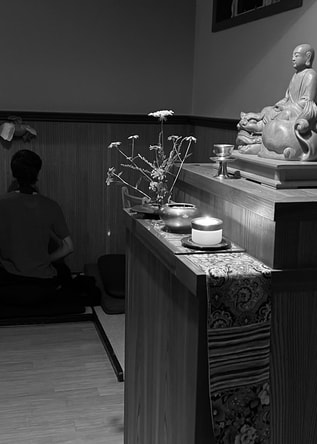 Practice carries on in "quiet February": In the midst of a warm first half of the month here in Bloomington, practitioners have settled into February's simplified practice schedule, letting go of morning liturgy and Zuimonki readings, most Sunday dharma talks, and evening practice activities. This seasonal practice rhythm, echoed again in August, is quieter and more focused on zazen within a less intensive schedule. It is related to Uchiyama Roshi's sesshin schedule at Antaiji, where a sesshin was held every month except February and August, marked as the coldest and hottest months each year. Preparations for March sesshin (see below) have carried on outside of a designated sangha workday, as practitioners have worked on their own or in small groups to remove the paint from our recently donated zendo bell to increase its tonal clarity, construct a new mallet for ringing the bell, hook up another fan in the zendo, and continue the installation process of a sliding barn door to more fully separate our kitchen from the zendo.
Coming up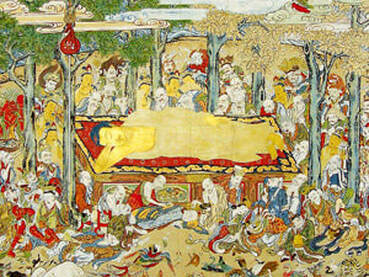 Parinirvana ceremony & potluck (Sunday, Feb 18): Next Sunday we will mark the occasion of Shakyamuni Buddha's parinirvana (nehan). Note that this Sunday's schedule is different from the "quiet February" schedule of this month's other three Sundays. This is one of the sanbukki, or Three Buddha Days, marking the important events in Shakyamuni's life -- his birth, awakening, and death. This Sunday, Hoko will give a dharma talk on "everyday parinirvana," and then we'll hold a brief ceremony followed by a potluck lunch. 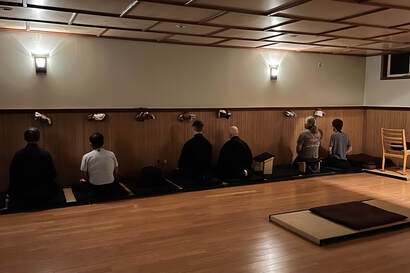 Uchiyama Roshi memorial sesshin (Mar 7 - 10): A few spaces remain for participation in our upcoming March sesshin, which we dedicate to the memory of Kosho Uchiyama Roshi, the teacher of our founder, Shohaku Okumura. He died on March 13, 1998. We will hold a brief memorial service following the usual Sunday morning zazen and dharma talk, given by Okumura Roshi himself. LEARN MORE AND REGISTER HERE
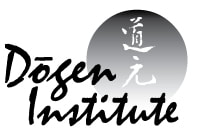 Save the date for the May virtual dharma study intensive (May 2 - 11): Plans are underway for our Dogen Institute to sponsor the second virtual dharma study intensive with Sanshin's founding teacher Okumura Roshi this May. During the inaugural event last November, Okumura Roshi lectured on Dogen Zenji's Shobogenzo Zazenshin. During this May's series of ten lectures, he will talk on Menzan's Jijuyū-zanmai (Samadhi of the Self). Jijuyū-zanmai was written by Menzan Zuiho (1682-1769) as a guide to zazen for lay students. In it, he explains that the Buddha's samadhi is nothing other than the zazen which we practice with our body and mind, and he urges us to live in accordance with the three-fold pure bodhisattva precepts. Okumura Roshi translated this important text in the early 1980s for Sotoshu, and it appeared originally in the book "Dōgen Zen," along with other writings. He later revised the translation slightly for its appearance in the 1988 edition entitled "Heart of Zen." Although Sotoshu still makes this available as a free e-book, Okumura Roshi wishes to newly translate the work for the upcoming dharma study intensive. Stay tuned for further details and registration information in the coming weeks. Sanshin NetworkTransmission complete: Jisho Takahashi has completed dharma transmission with Okumura Roshi. She has returned to Muryo-ji in Nagano prefecture in Japan, where she has lived and practiced since 2020. Before that, she also practiced for two years in residence at Aichi Senmon Niso-do, and regularly practiced at Sanshin while living in Bloomington a few years ago. 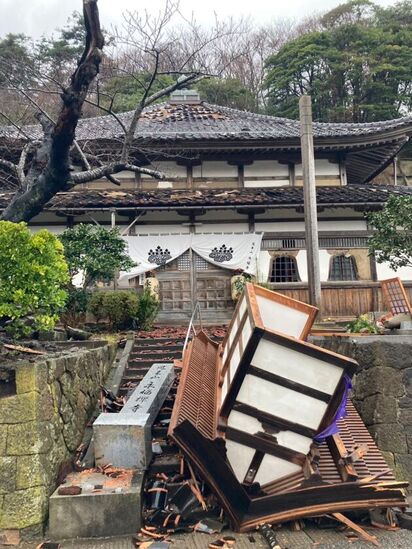 Opportunity to support two temples damaged by an earthquake: Jisho Takahashi has organized a fundraising page to offer financial support for two temples in Japan which experienced significant damage from an earthquake that struck the Noto Peninsula on New Year's Day, 2024. These two temples have connections to Sanshin. Ryushoji was founded by Rev. Waju Murata, who practiced at Antaiji about 40 years ago at almost the same time as Okumura Roshi. The abbot of the other temple, Eifukuji, is Rev. Koshu Ichibori, who visited Sanshin in 2017 through a Sotoshu program, staying in Bloomington for several days and later visiting Ryumonji in Iowa and Great Tree Zen Women's Temple in North Carolina. All funds raised will be distributed to Ryushoji and Eifukuji, and updates on their long-term rebuilding process will be posted to the fundraising page every few months. LEARN MORE 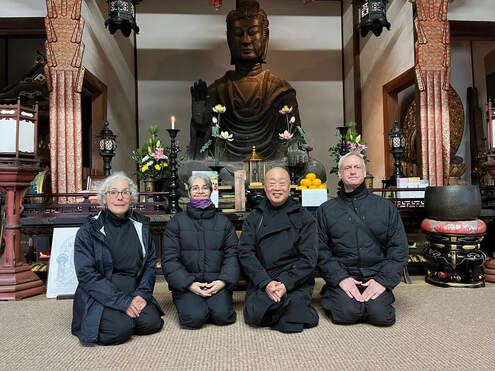 "Arrived at Asuka Village, gathered in front of the first Japan-made Buddha statue at Japan's first Buddhist temple, Asuka-dera (AD. 588)" "Arrived at Asuka Village, gathered in front of the first Japan-made Buddha statue at Japan's first Buddhist temple, Asuka-dera (AD. 588)" New York Zen Community in Japan: Practitioners with the New York Zen Community for Dogen Study, founded and led by Issan Koyama, are traveling through Japan for three weeks visiting important sites in Buddhist and Soto Zen history. If interested in following their footsteps virtually, please send friend requests to either/both New York Zen Community for Dogen Study and/or Hajime Issan Koyama on Facebook, or "Follow" Issan Koyama on Instagram. New temple in Colombia: The Soto Zen Colombia sangha has established a new companion center for practice in the mountains outside of Ibagué, Colombia. Densho Quintero reports: "On Friday, January 26, we held a simple ceremony to begin the practice in our rural center Hosenzan Zenshinji, Dharma Spring Mountain - Heart of Zen Monastery. A privileged place full of life, diverse animals and wonderful birds, with a natural birth of water. Place of recognition and silence in which we have been welcomed as guests by the majestic mountain and its inhabitants. Our commitment is to protect and conserve life and water. May the practice of the Way continue to bring light to confused hearts so that peace may reign."
 Practice opportunities in Minnesota: In March, Shodo Spring will continue her monthly series of online classes exploring core Soto Zen teachings with a study of Dogen's Genjokoan. She will also be holding sesshin from March 15-17, as well as a series of three "Earth Apprentice Retreats" in April, May, and July, combining spiritual relation with land and meditation practice. For more information about the Mountains and Waters Alliance and their practice offerings, see their 2024 calendar.
Are we reaching you?
Do we have the best and most current contact information for you? If you've changed your e-mail address or moved to a new place of residence, or if we've never had complete information about how to reach you, it's time to update your record. Please take a moment to go here to send us the contact information you'd like us to use. We'll check it against your current record and update as needed. Don't miss any of the upcoming communications from Sanshin -- update your info today! |
Sangha NewsOur newsletter is posted once a month. Sign up for our mailing list to get notifications of new issues. Archives
July 2024
|

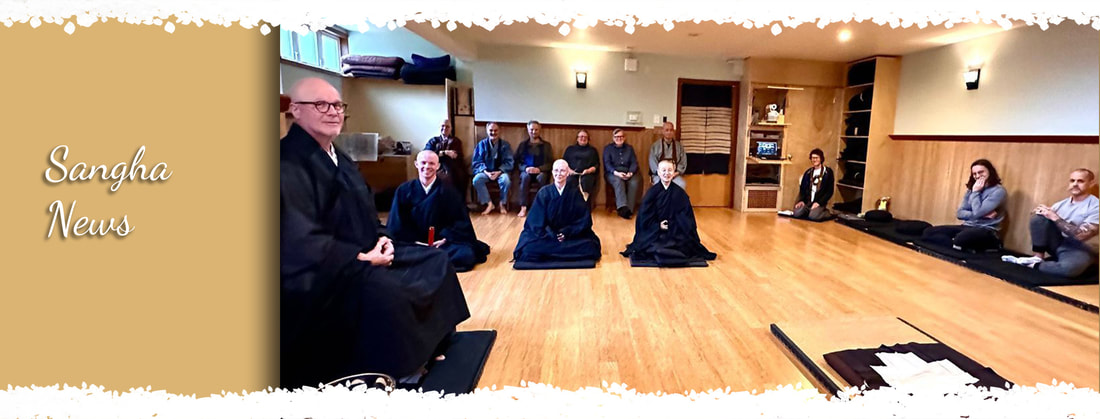
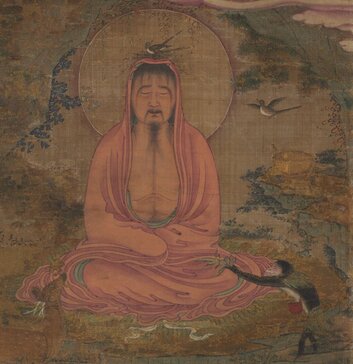


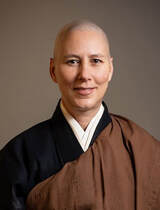
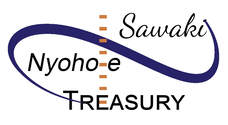



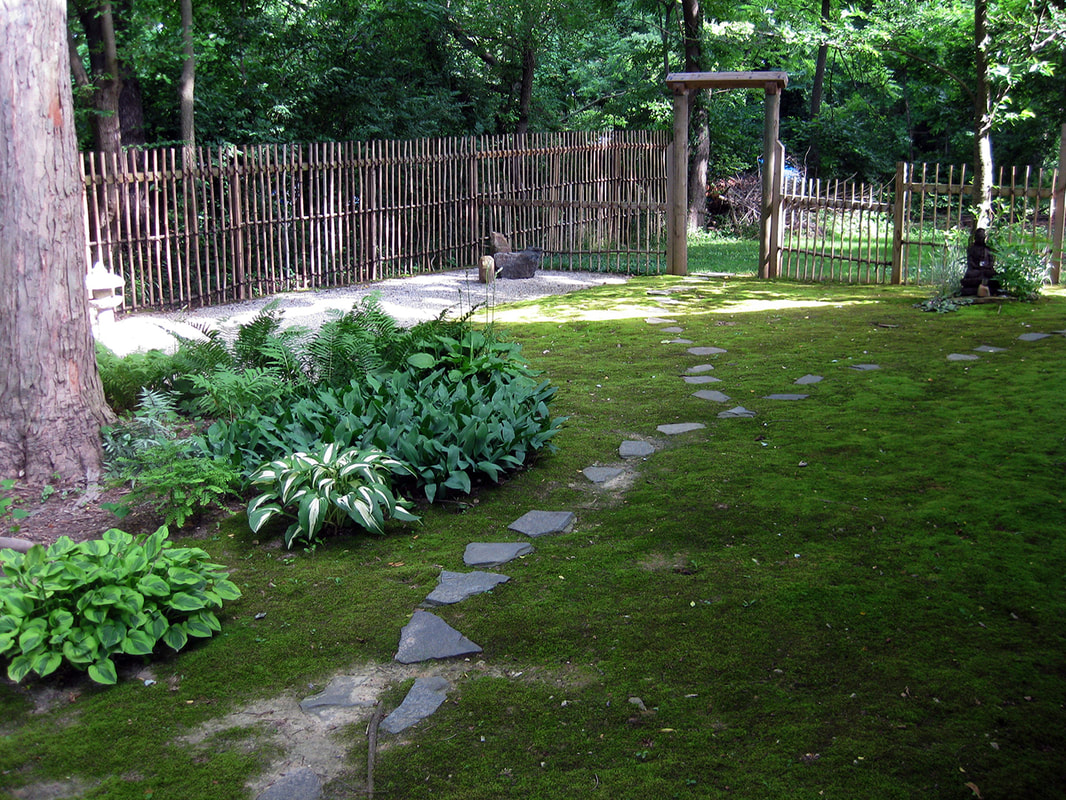
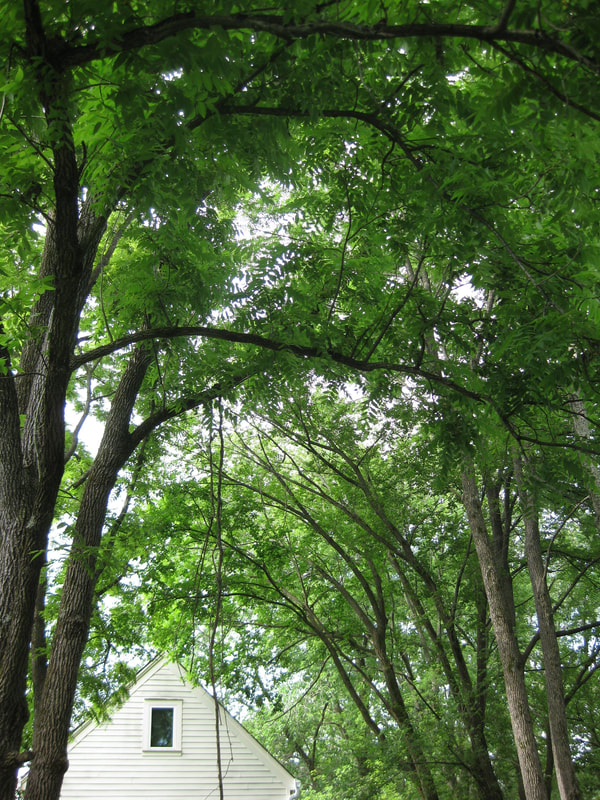
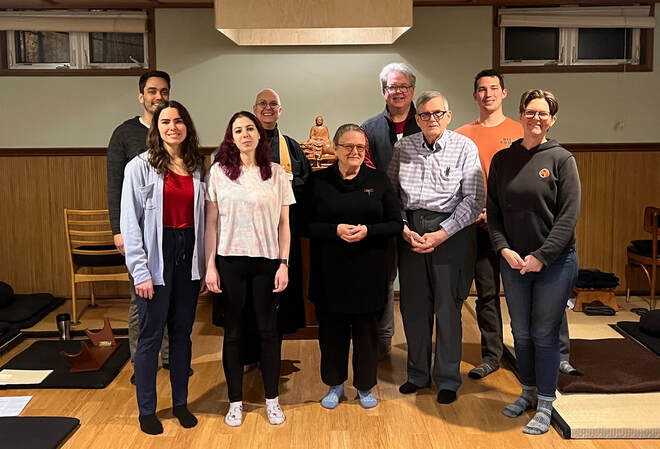
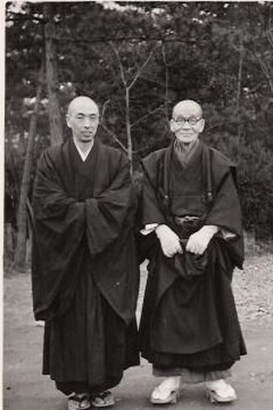


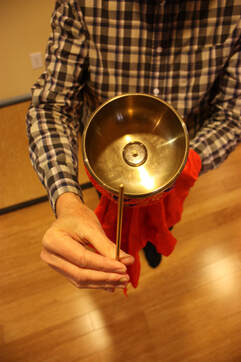
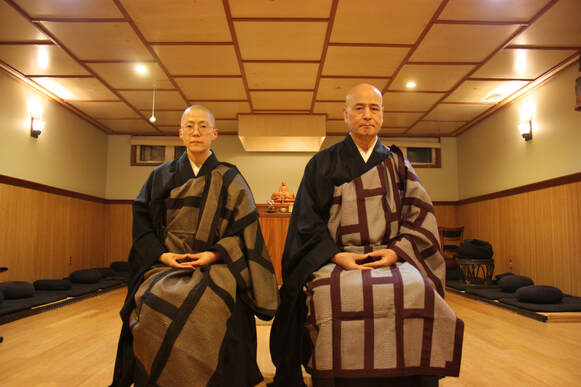
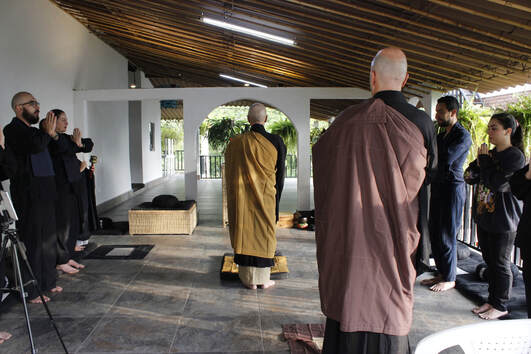
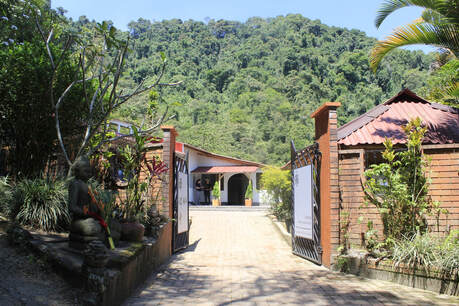
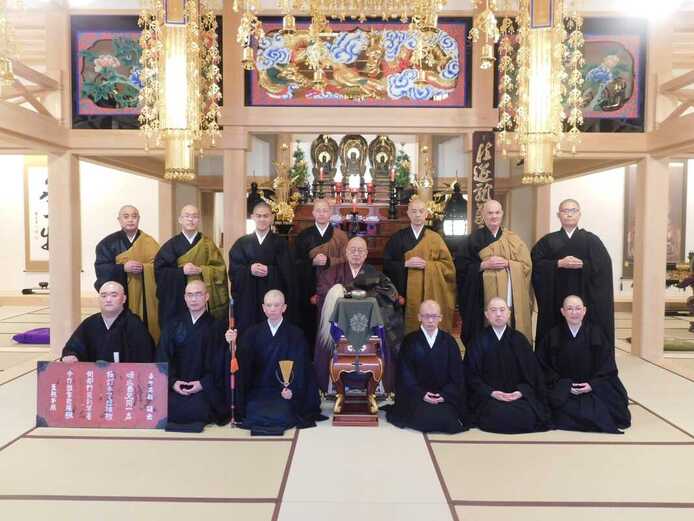
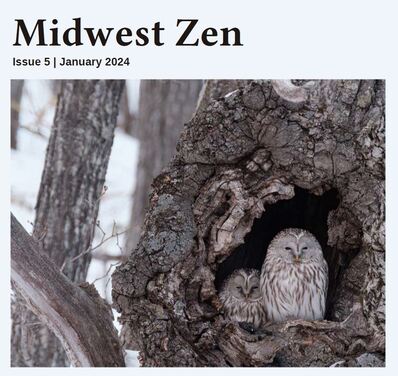
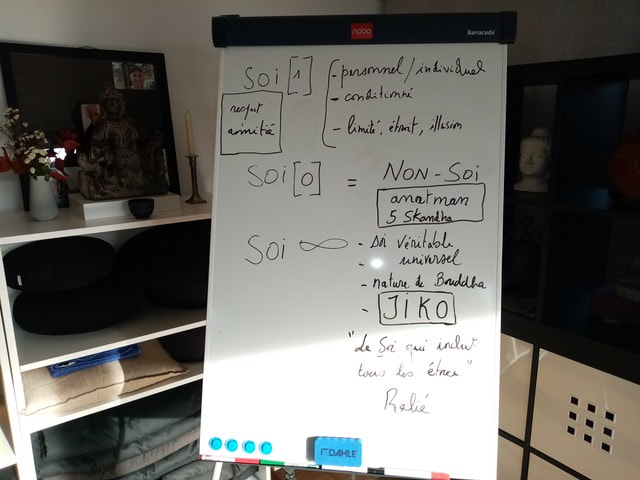
 RSS Feed
RSS Feed